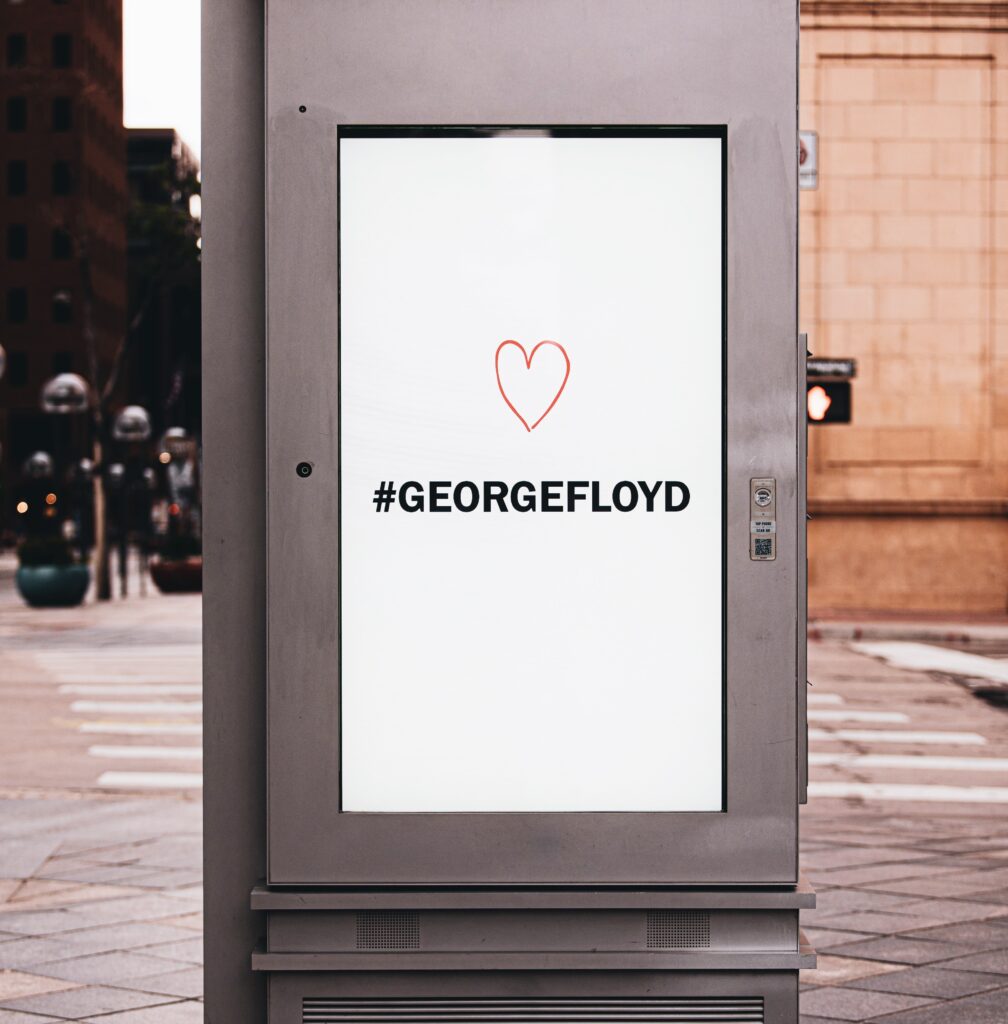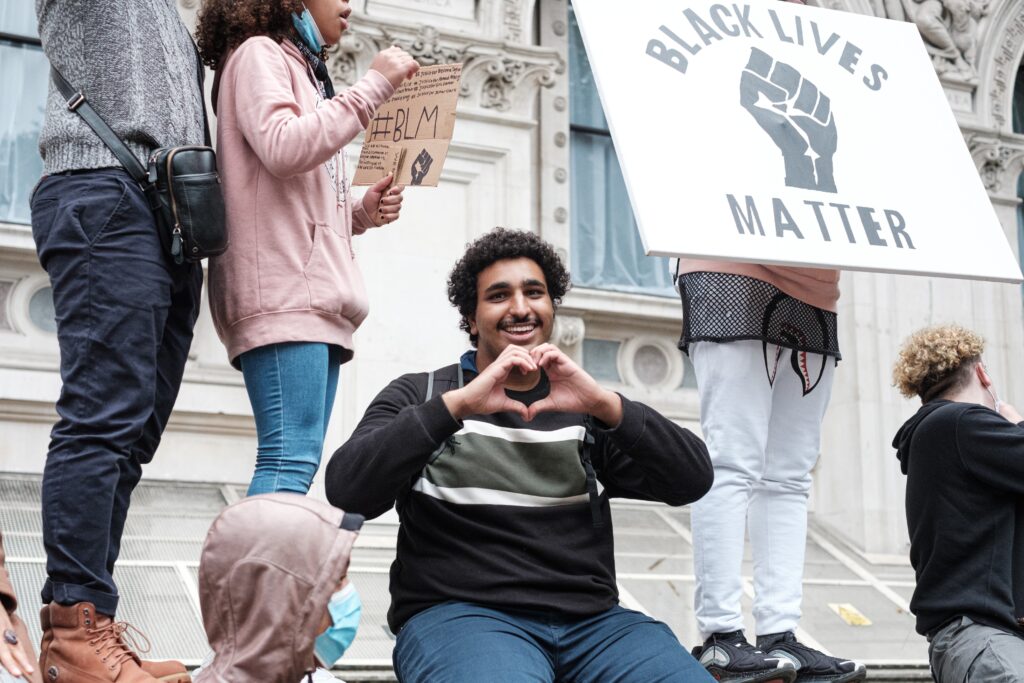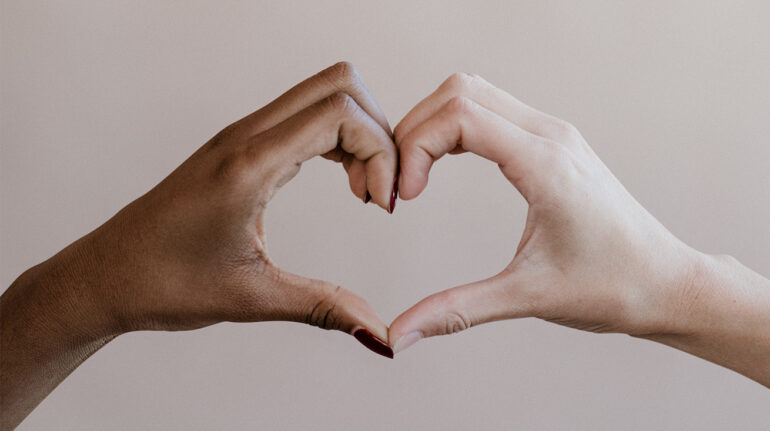As part of our “Love Essentially” series, Jackie Pilossoph helps us navigate the complex world of relationships. Have a question that you would like her to answer ? Contact her here, and it may be featured in an upcoming article!
I’m the kind of person who sees, hears, and breathes love almost all day, every day. It starts with frequently kissing my kids (who are teenagers, by the way,) cuddling with my dog every chance I get, and going out of my way to share positive thoughts with family and friends who might need lifting up during a tough time. But even more than appreciating family and friends, it includes my deep devotion to Chicago and to this glorious country where I’ve been fortunate to live my entire life.
Throughout Coronavirus, I’ve made an extra effort to show, share and feel love, and not just with people I know. Whether it’s making donations, hanging posters with inspirational messages on my front door, or reading books on the subjects of faith and gratitude, I’d say I’ve been able to use love to stay as positive as possible, waiting for this dark and scary time to pass.
I’ve also witnessed beautiful acts of kindness and love amidst the horrific pandemic. These include financial donations to those in need, meals to essential workers, blood donations, and support for local businesses. In other words, it is clear that we’ve had each other’s backs. Love and human connection have shined bright in a time of darkness.
Then the George Floyd tragedy happened. The longstanding legacy of injustice came more clearly into the light. I watched the news in horror—a police officer committing a brutal hate crime, holding his knee on Floyd’s neck for more than eight minutes until the 46-year-old black man could no longer breathe. Floyd died minutes later.

The hate didn’t end there. As if this heinous, inhumane act wasn’t heartbreaking enough, more people are now suffering. The deep-seated wounds of police brutality and racism run deep. Peaceful protests aren’t always safe. Businesses are getting destroyed. People are being beaten, and innocent police officers are fearing for their lives.
The question I have is, how did love unravel so quickly? How were we able to bond together so beautifully in response to a terrifying outbreak and then divide in the blink of an eye? Clearly, we are so much more divided than too many of us thought. This terrible tragedy, fueled by racism and the system that has allowed it for too long, brought more pain and sorrow into a world that already has so much.

What I urge anyone who is reading this to do is, ask yourself what love means to you. Knowing that answer is more important than ever before. Does love mean calling an elderly person to check in and make sure he or she has enough food? Does it mean trying to make a difference by educating yourself on anti-racism? Does love equate to helping a small business owner financially? Or does love simply mean being open-minded, having empathy and putting yourself in someone else’s shoes—perhaps someone of a different race, religion or sexual orientation? Even the smallest action can make a difference. As Lao Tzu says, “The journey of a thousand miles begins with a single step.”
Hate stems from these things: fear, pain, ignorance and frustration. Love can overcome any of these things if you can find the courage to educate yourself, the faith to cope with your sorrow, and the wisdom to know that things don’t change overnight.
I’m not going to lie. It hasn’t been easy for me to focus on love lately, perhaps for the first time in my life. These past couple days, fear, anger and frustration have left little room to feel anything good. It’s depressing.
But here’s the thing about love. It never disappears completely. It sits quietly in our hearts waiting for us to reject the hate and dig deep to find compassion. And when we do find it, that’s when the healing begins, and the next two players get in the game: progress and change.
May George Floyd rest in peace, and may God bless America and give us the strength to bond together to abolish hatred and promote more unconditional love. We are all one family.
How to Help:
Many are finding that helping others is an effective way to help combat feelings of powerlessness in the face of COVID-19. Here are some organizations that need your help in Chicago and the Bay Area right now.
More from Better:
- You Said It: Support Those Battling Addiction During COVID-19
- What Exactly Are These Emotions We Are Feeling? Psychologists Explain
- Can You Be Happy During A Pandemic? Research Says Yes
 Jackie Pilossoph is a former television journalist and newspaper features reporter. The author of four novels and the writer of her weekly relationship column, Love Essentially, Pilossoph is also the creator of the divorce support website, Divorced Girl Smiling. Pilossoph holds a Masters degree in journalism and lives in Chicago with her two teenagers.
Jackie Pilossoph is a former television journalist and newspaper features reporter. The author of four novels and the writer of her weekly relationship column, Love Essentially, Pilossoph is also the creator of the divorce support website, Divorced Girl Smiling. Pilossoph holds a Masters degree in journalism and lives in Chicago with her two teenagers.

